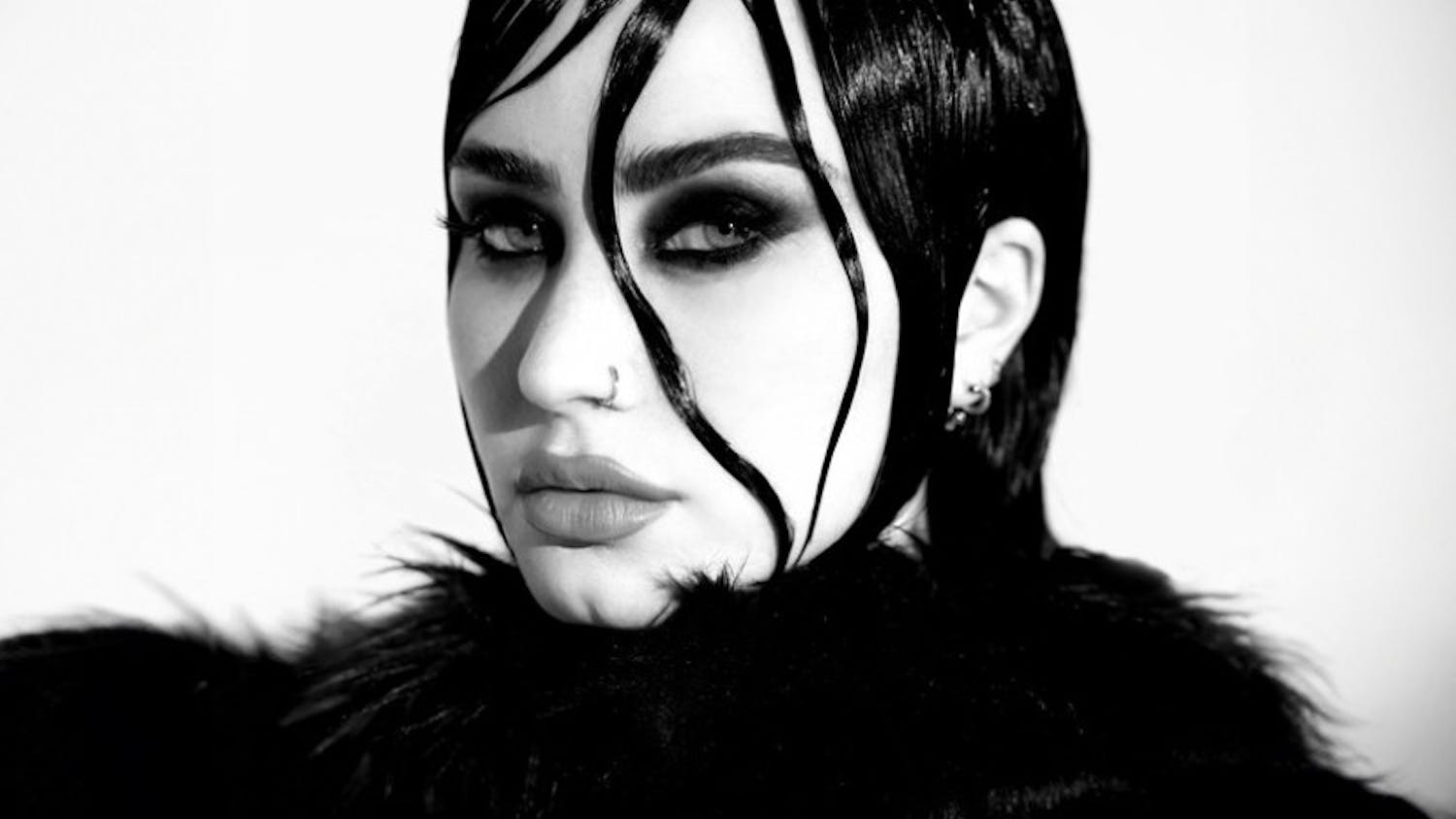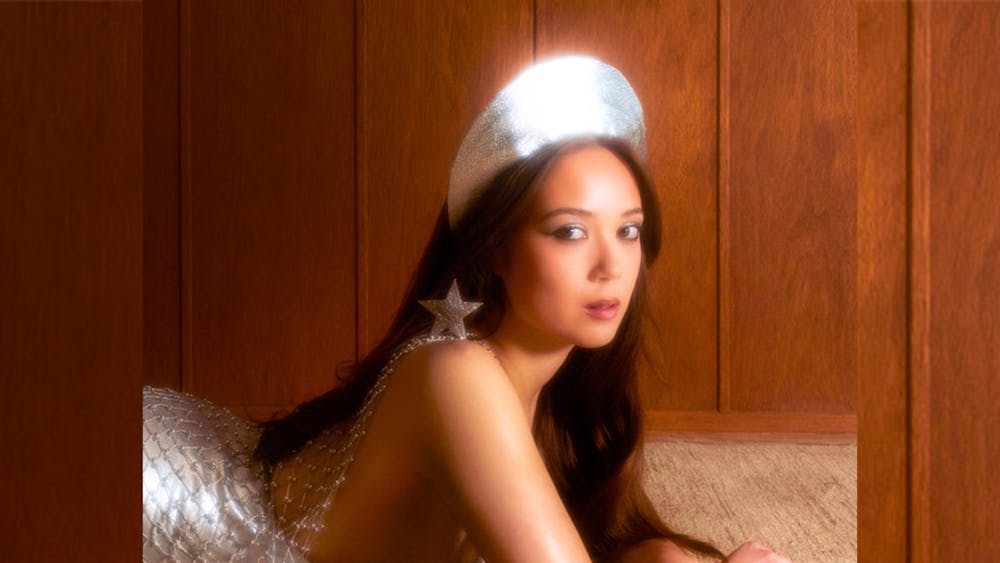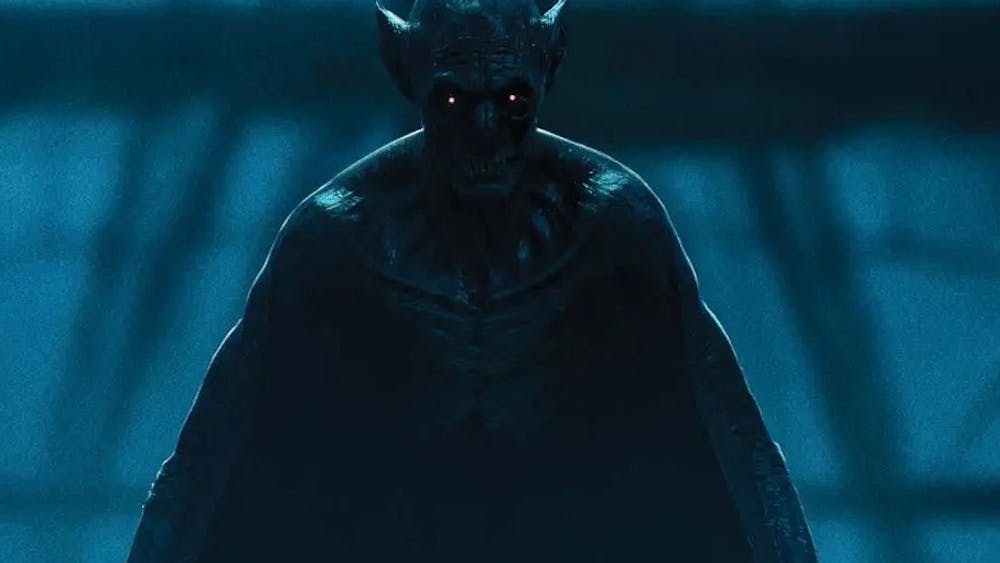At the age of 7, Maya Angelou lost her voice.\nFour days after her disclosure that her mother's boyfriend had raped her, two policemen entered the parlor of her grandmother's house in St. Louis. Their very presence jarred her. But it was what they said that shocked her into mute silence -- the rapist, released after one night in prison, had been found dead, apparently kicked to death.\nAngelou, shaken, simply stopped speaking. Afraid that "the very opening of (my) mouth would issue death," she retreated from all personal contact, eventually finding herself shipped back to live with her maternal grandmother in tiny Stamps, Ark.\nFive and a half years later, she found that lost voice again, in "a rainbow in the clouds."\nStriding confidently onstage at the IU Auditorium Wednesday night, the award-winning essayist, poet, musician and playwright captivated the audience with that voice. In a rich contralto, she sang "When it looks like the sun/wasn't going to shine anymore/God put a rainbow/in the clouds."\nAngelou dedicated her speech to helping the crowd find their own "rainbows," beacons of light symbolizing hope even in one's darkest hours. She also urged them to look closer into the people and institutions surrounding them, citing IU as "rainbow" itself. \n"I think this University is a rainbow in the clouds," Angelou said. "People might not have a dream or hope of going to a university, but they found that possible path at this university. That tells me this place is a rainbow in the clouds."\nShe also deemed poetry, particularly that of the black tradition, a source of strength in personally ascertaining life's meaning. During her five-year silence, Angelou said she memorized poetry, so that even after she left the racially divided "condition of Stamps, Ark., I found myself pulling on what I'd read. I knew that those words were meant for me."\nThat lesson, Angelou said, surfaces as a universal truth for all people, regardless of color or socioeconomic background. \n"When you are able to pull words from your mind, it helps you think, 'I'm not the only one ignored, mistreated (or) lonely. People have been abused before me. Yet someone has survived -- has thrived -- with passion, compassion, humor and style," she said. "Whatever your race, you need something to say you are right for yourself."\nThat message spoke volumes to freshman Terrell Cooper. Citing Angelou as a "real inspiration," Cooper said, "so often, we take for granted what we can do and what we possess. It's up to us to do what's inside."\nIn addition to the internalization of poetry, Angelou lauded the role of personal relationships in shaping individuals. For Angelou, her grandmother, "Mama," personified that rainbow. In encouraging her granddaughter to cherish the works of such celebrated black poets as Langston Hughes and Paul Lawrence Dunbar, this noble matriarch inspired hope in the young Angelou. \n"The direct relationship to the heroes and she-roes, in accordance with institutions formed to challenge and provoke, become rainbows in the clouds," Angelou said. "When you learn, teach; when you get, give … and today I teach all over the world because someone didn't mind being that rainbow in the clouds."\nFor freshman Erica Petty, who attended the lecture, Angelou herself is that "she-roe," that rainbow offering hope in otherwise bleak times.\n"When she walked onstage, she took my breath away," Petty said. "Everything she said spoke to me. She is, to me, that 'rainbow in the clouds."
Angelou wows crowd
Author, poet recalls life experiences that shaped future
Get stories like this in your inbox
Subscribe





